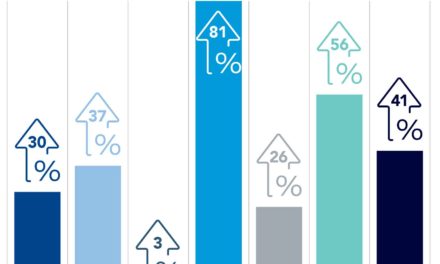Better Business Podcast EPISODE 5
Friends, Partners, and Allies:
The Future of U.S. Trade Relations Abroad
Guests: Terrence Guay, clinical professor of international business, associate dean for international programs, and director of the Center for Global Business Studies Pierre Cohade, independent director, advisor, and expert on China relations.
What is the future of globalization?
There are many challenges threatening the current international trade flow, from supply chain disruptions to political roadblocks, climate threats, and much more. Given these challenges, how can business leaders best strategize for future growth and leverage the opportunities that come with connecting with international partners?
Terrence Guay, clinical professor of international business, associate dean for international programs, and director of Smeal’s Center for Global Business Studies, describes the present
moment as a “very critical time” in globalization’s trajectory.
“[I] think we’re at a point where it’s become very complicated for countries to figure out what their future is going to be, particularly when you look at the divisions within democracies,” he says. “But even in countries that are not democracies, there’s a tension between who’s benefitting from the globalization process and who within these countries has not.”
Pierre Cohade, an independent director, advisor, and expert on China relations, believes the future of globalization hinges on a single issue: How wealth is distributed.
“As a businessman, I believe in free trade. And from a free trade standpoint, I believe in the efficiency that free trade creates. Efficiency means wealth creation,” he says. “And so, the question is, how do the state and the nation state distribute the wealth among the different stakeholders?”
For the last 30 years, globalization has been largely unencumbered. The next 30 years, Cohade says, are likely to be rife with challenges.
“There is a certain fragmentation that we cannot ignore,” he says. “It is no longer prudent to have one manufacturing site for the world. We are all looking at having different manufacturing sites closer to potentially large markets. And that is both a geopolitical choice and a choice enabled by technology.”
The United States and China, the countries with the world’s two largest economies, are likely to have tremendous influence over the future of globalization. But while trade has grown exponentially between the two countries over the last 25 years, differing political and cultural agendas have also strained their relationship.
“The U.S.-China relationship is very critical for globalization, but it is full of potential landmines and major problems in the coming years,” Guay says.
Underlining the significance of the relationship, Cohade argues, “You cannot be a global player without having a successful business in China.”
One major reason for that, he says, is because China’s middle class is the largest in the world. “There are, right now, about 550 million Chinese citizens living a middle-class life,” he says. “Two hundred million more will be joining the middle class in the next 10 years.”
His advice for western businesses striving to expand to China and other parts of the world with questionable human rights records is to have a well-established set of core values before making such a move.
“So, when you go into a country like China, you bring that strength with you,” Cohade says. “And one of the reasons you can attract and retain Chinese talent is precisely because you do things the right way.”
– Scott Edwards


Terrence Guay (top), clinical professor of
international business, associate dean for international programs and director of the Center for Global Business Studies, and Pierre Cohade ‘85 MBA, independent director, advisor, and expert on China relations, discuss the future of U.S. trade
relations in Episode 5 of the Better Business Podcast.




